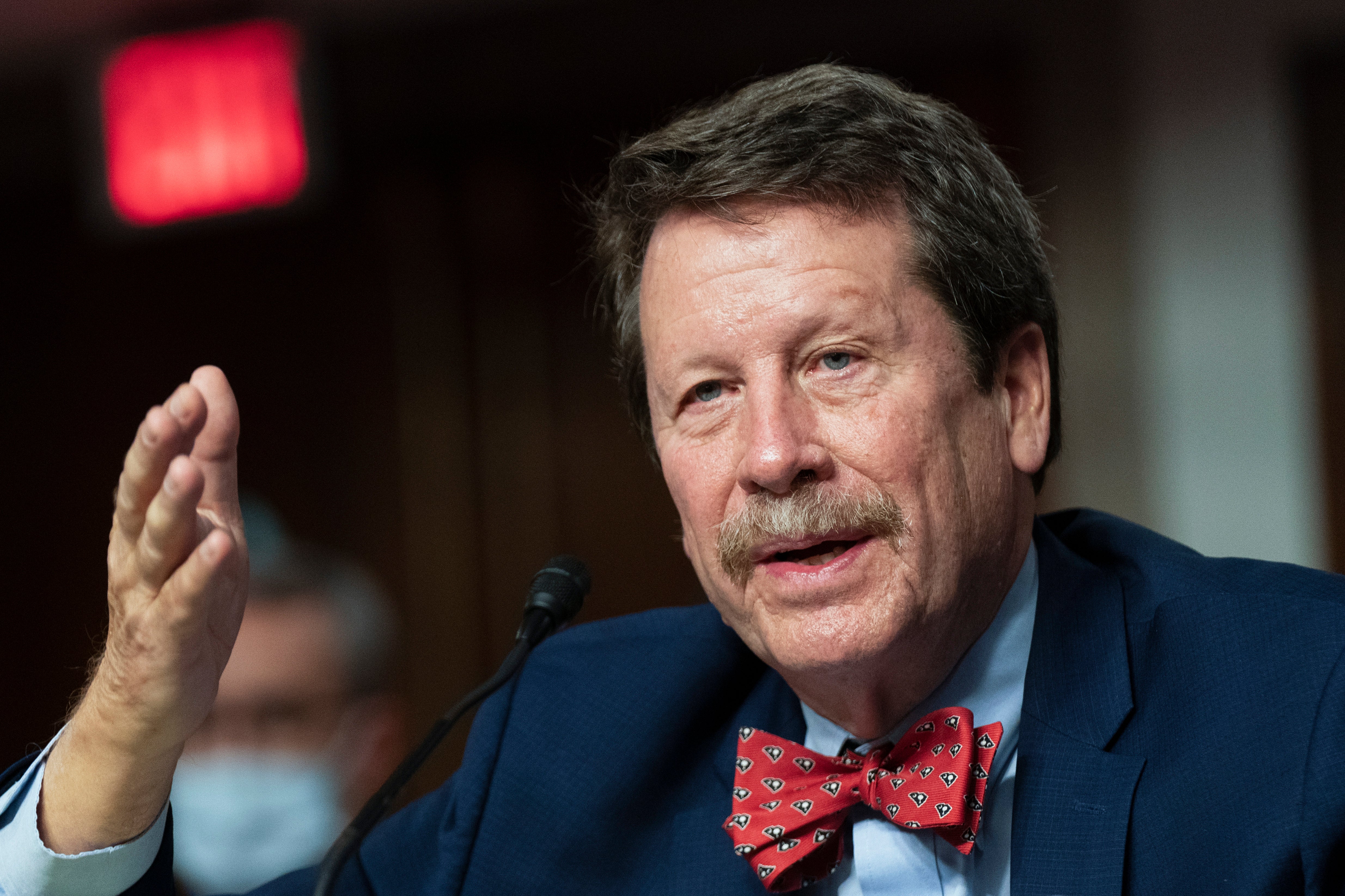FDA pick parries questions at collegial confirmation hearing
President Joe Biden’s pick to lead the Food and Drug Administration deftly parried questions on crises ranging from the COVID pandemic to the opioid epidemic

Your support helps us to tell the story
From reproductive rights to climate change to Big Tech, The Independent is on the ground when the story is developing. Whether it's investigating the financials of Elon Musk's pro-Trump PAC or producing our latest documentary, 'The A Word', which shines a light on the American women fighting for reproductive rights, we know how important it is to parse out the facts from the messaging.
At such a critical moment in US history, we need reporters on the ground. Your donation allows us to keep sending journalists to speak to both sides of the story.
The Independent is trusted by Americans across the entire political spectrum. And unlike many other quality news outlets, we choose not to lock Americans out of our reporting and analysis with paywalls. We believe quality journalism should be available to everyone, paid for by those who can afford it.
Your support makes all the difference.President Joe Biden’s pick to lead the Food and Drug Administration parried questions on crises ranging from the COVID-19 pandemic to the opioid epidemic, during a collegial Senate hearing Tuesday that seemed to bode well for his confirmation.
Dr. Robert Califf, who served briefly as FDA commissioner toward the end of the Obama administration, promised that if confirmed he would use data to streamline the approval of COVID treatments and tests, conduct a full review of the agency's controversial handling of opioid painkillers, maintain focus on tobacco regulation, work to make prescription drugs more affordable, and confront medical misinformation on social media.
A cardiologist with strong connections to the pharmaceutical industry and academic research centers, Califf insisted to the senators on the Health, Education, Labor and Pensions committee that public service is his motivation for returning to the FDA. In a self-deprecating aside, he referred to himself as “a 70-year-old person with nothing to gain."
His most pointed questioning came from Vermont Independent Sen. Bernie Sanders, who underscored Califf's connections to drug companies and his multi-million dollar investments in pharma stocks. “What kind of comfort can you give to the American people when you have been so closely tied to the pharmaceutical industry yourself?” demanded Sanders.
Responded Califf: “I'm totally with you. The price of pharmaceuticals is way too high in this country."
Top Republican Sen. Richard Burr of North Carolina said he hoped his colleagues would vote for Califf, while Sen. Bill Cassidy, R-La., told the nominee, “I thank you for your vision.”
The FDA has been straining for months under a massive pandemic workload even as a series of scientific disputes — including the approval of a controversial Alzheimer’s drug — have marred its public reputation. Califf’s nomination by Biden last month was seen as a safe, steady choice to guide the agency, which hasn't had a permanent leader since last January.
The FDA regulates the vaccines, drugs and tests used to combat COVID-19. That’s on top of its normal duties regulating a swath of consumer goods and medicines, including prescription drugs, medical devices, tobacco and vaping products.
More than a year after authorizing the first COVID-19 vaccines, the FDA still faces a string of key decisions, including whether to expand booster shots to younger teens and children. Additionally, as researchers learn more about the omicron variant, the FDA will play a deciding role in whether the shots should be updated to target the strain.
FDA commissioners aren't typically involved in day-to-day scientific reviews, but they serve as the go-between the agency’s scientists and political decisionmakers in the White House.
That relationship came to a head this fall when the FDA's two top vaccine reviewers publicly opposed the Biden administration’s plan to offer boosters to all American adults. Both have since retired from the agency after decades-long careers, giving Califf an opportunity to choose key replacements. Last month, the FDA ultimately signed off on boosters for all adults as COVID-19 cases surged again.
Califf will also help choose a new chief for the FDA's tobacco center, which is weighing whether to ban e-cigarettes from Juul and other vaping companies due to their risks to teens.
Califf's first stint as FDA commissioner came after more than 35 years at Duke University, where he founded a contract research organization that conducts studies for many of the world’s largest drugmakers.
Since leaving government he has worked as a health policy adviser for Google and served as a board director or adviser to more than a half-dozen drug and biotech companies. If confirmed, Califf would resign from all of those positions, according to a recent federal disclosures form.
Under Califf in 2016, the FDA added bolstered warnings to prescription opioids and began publicly scrutinizing all new opioid drug applications. But the agency has yet to implement many other steps recommended by experts, including an overall review of whether the opioid painkillers pose more risks than benefits for society at large.